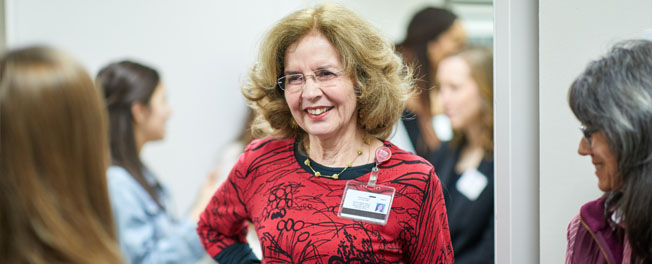
Family Caregiving
Dr. Kniepmann mentors students interested in Family Caregiving, especially for adults with stroke or related conditions. The abrupt changes and diverse needs experienced by family caregivers constitute a major public health challenge. While caregiving can be rewarding and fulfilling, it can also create difficulties that undermine health and quality of life for the entire family. Many caregivers report a combination of positive and negative effects; they may neglect their own needs as they focus on their relative’s needs. Caregivers can be confused by the effects of stroke or other diagnoses on everyday life. It can be difficult to decide how to balance helping or overhelping the relative and at the opposite extreme, expecting the relative to do everything for themself and function as they did in the past.
General Description of Student Activities
Students will review and critique literature, policies and resources. They will be involved in formulating new questions as well as developing and evaluating strategies to support health promotion and self-management for family caregivers. Students may also develop and evaluate educational programs and tools for clinicians, clergy, other professionals and community networks who work formally or informally with family caregivers. Students will contribute to educational materials, publishable manuscripts, and/or presentations for local, regional and national venues.
Examples of Projects
- Develop and evaluate occupation-focused resources for families with stroke or related conditions, particularly in underserved populations
- Develop and test the effectiveness of family education resources for clinicians and others who are involved in discharge education, outpatient therapy and community services or resources
- Identify intimacy and sexuality concerns of partners/ spouses post-stroke, especially among caregivers who are male or who are LGBTQIA individuals
- Collaborate with denominational networks to address concerns of families whose relatives had a stroke or a related condition.

